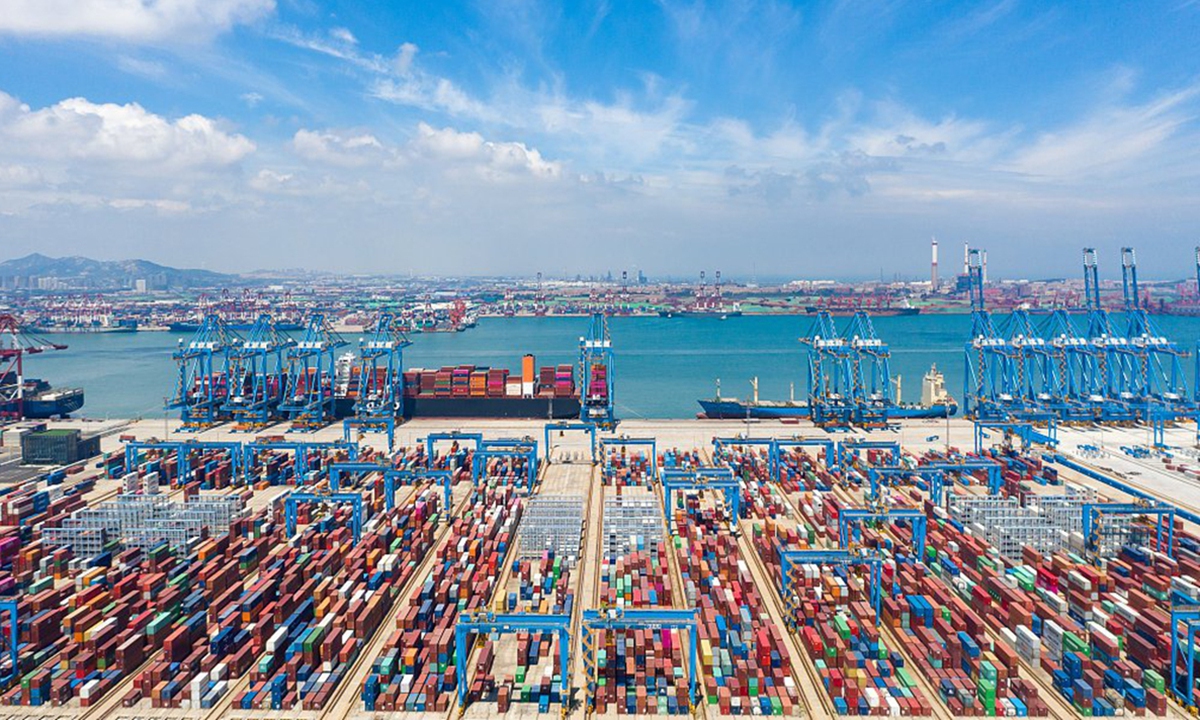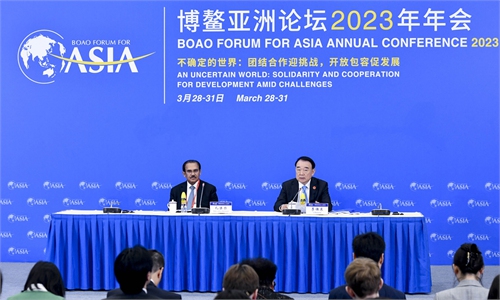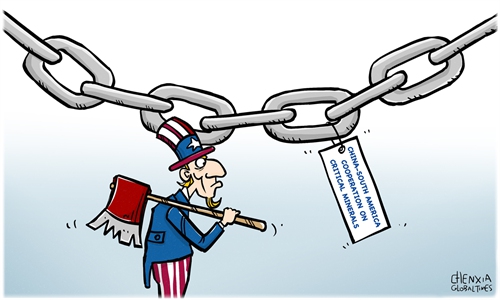US respondents more confident in China than own country in terms of economic recovery: GT poll
US respondents more confident about China than own country

China trade economy File photo: VCG
More than 80 percent of respondents said that they have confidence in China's economic recovery, according to a survey conducted by the Global Times Research Center covering 349 company managers in 10 countries.
The survey was done in March among company management-level respondents from the US, Japan, Germany, India, the UK, Australia, Spain, Mexico, Indonesia and Vietnam.
Among those surveyed, 83.4 percent expressed confidence in China. The questions focused on the outlook for the global economy and the opportunities and challenges that companies face.
The survey, coupled with findings by global forums and multilateral institutions, underscored the strong resilience of the Chinese economy and the confidence it conveys to the global business community, Chinese experts said.
Respondents from India and the US had the highest confidence scores for the recovery of the Chinese economy in the coming three years.
Notably, some 63.6 percent of US respondents have high or relatively high confidence in China's economic recovery, while only 45.5 percent have such levels of confidence in the recovery of the US economy. Just 40.9 percent of US respondents have such levels of confidence in the EU's economic recovery and only 38.6 percent have confidence in the world's economic recovery.
Confidence in China's economy reflects the overall situation of economic development of major countries around the world, Li Yong, deputy chairman of the Expert Committee of the China Association of International Trade, told the Global Times on Wednesday.
For the US, the weak confidence is also in line with forecasts by international organizations and US institutions. China's economic development, on the contrary, is full of resilience, Li said. He noted that China's financial environment has remained stable amid financial crises in the US and Europe, reinforcing the responses by the US respondents.
Some 49.8 percent of those surveyed said the top constraining factors for the world economy in 2023 are high raw material prices and sea freight costs. Wars, energy and food crises were seen as major hurdles the world is being confronted with.
Among the respondents, 25.7 percent believe the global spread of trade protectionism is curbing world economic growth, and more than half of them said that such constraints have a serious negative impact on the global economic recovery and development.
Amid recession concerns, global companies are looking to China as a stabilizer for their businesses.
Global business leaders have flocked to China in March, attending events such as the China Development Forum held in Beijing and the Boao Forum for Asia (BFA), expressing confidence in and commitment to China's economy. Chinese officials have made clear China's commitment to a higher level of market opening, an improved business climate and multilateral cooperation.
A BFA flagship report released on Tuesday noted that Asia's economy is expected to grow 4.5 percent in 2023 thanks to an accelerating pace of growth, which will be a "bright spot" in an otherwise bleak global economic landscape.
IMF Managing Director Kristalina Georgieva said on Monday that China's economy is seeing a strong rebound, which "matters for the country itself and matters for the world."
Georgieva noted that the robust rebound means China is set to account for around one-third of global growth in 2023 - giving a welcome lift to the world economy.
The survey also revealed that some 58.6 percent of the respondents believe China's science and technology industrial chain has an "apparent advantage" in product manufacturing and scalability, while 40.2 percent said China has advantages in commercialization of scientific discoveries and innovation and services.
Amid uncertainties in global economic and social development this year, China's industrial chain will serve as a vital ballast to ensure the global industrial chain's security and promote the recovery of the global economy and sustainable development, Wang Peng, a research fellow at the Beijing Academy of Social Sciences, told the Global Times on Wednesday.
Li said amid US crackdowns, a consensus among both companies and the government in China to accelerate the pace of breakthroughs in bottleneck areas has been formed in China, beefing up China's supply chain advantages.
The respondents were from 18 sectors including industry, retail, agriculture and transportation.



